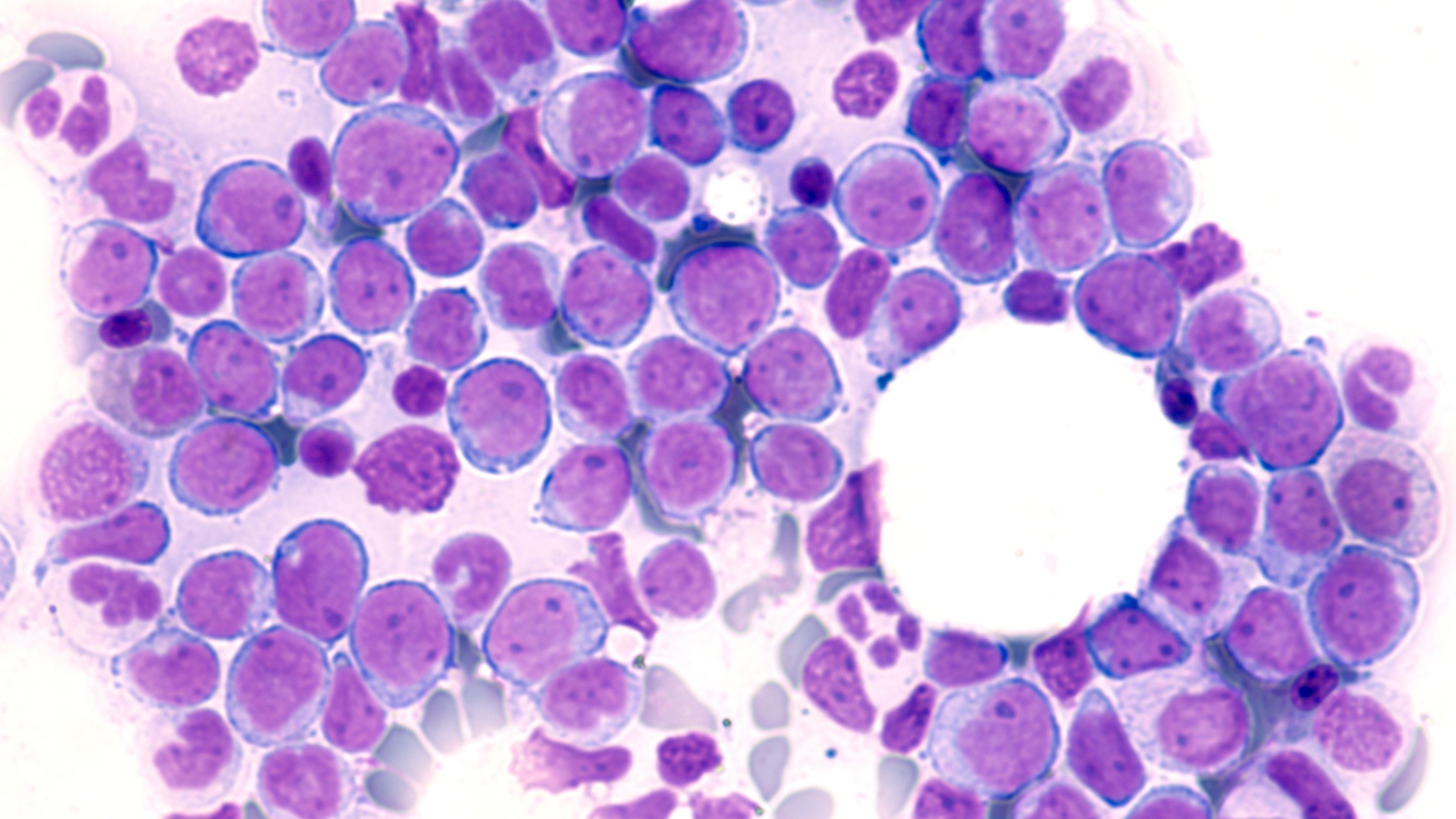FDA Halts Phase 1 PLAT-08 Study of SC-DARIC33 in AML
Following a report of a serious grade 5 adverse event, the phase 1 PLAT-08 trial of SC-DARIC33 in pediatric patients with acute myeloid leukemia has been placed on hold
Image Credit: © David A Litman [stock.adobe.com]

The phase 1 PLAT-08 trial (NCT05105152) investigating SC-DARIC33 in patients with acute myeloid leukemia (AML) has been paused due to a recent grade 5 serious adverse event (SAE) reported in a patient treated at the second dose level, according to 2seventy bio, Inc.1
The pause was put in place as part of the clinical study protocol stopping rules in response to the SAE reported. The FDA has been notified and the root cause of the SAE, along with its potential relationship to SC-DARIC33, is currently under investigation.
“Importantly, I’d like to offer that our thoughts are with the family during this time. The safety of every patient who participates in our studies or is treated with our therapies is the utmost priority for us, and we are in communication with FDA while we assess the data surrounding this SAE, and the potential next steps for the study,” said Steve Bernstein, MD, chief medical officer, 2seventy bio, in a press release.
SC-DARIC33 is an investigational CD33-targeted chimeric antigen receptor (CAR) T-cell therapy that utilizes 2seventy bio’s proprietary dimerizing agent regulated immunoreceptor complex (DARIC) T-cell platform.2 According to previously reported data from the PLAT-08 study, treatment with SC-DARIC33 at dose level 1 of 1 x 106 T cells/kg following lymphodepletion chemotherapy was generally well tolerated with no dose-limiting toxicities reported.
In the first-in-human, phase 1, non-randomized, open-label PLAT-08 study, investigators aimed to assess SC-DARIC33 in pediatric and young adult patients with relapsed/refractory AML. The trial is being conducted by Seattle Children’s and uses the DARIC T-cell platform.3
Enrollment in the study is open to patients up to age 30 with AML that expresses CD33 by flow cytometry. Patients must have a life expectancy ≥ 8 weeks, an appropriate stem cell donor source identified, adequate organ function, and a Lansky performance status score of ≥ 50 for patients aged <16, or a Karnofsky score ≥ 50 for subjects ≥ 16 years.
Patients with an active malignancy other than AML, those with a history of symptomatic non-AML central nervous system (CNS) disease or ongoing symptomatic CNS disease requiring medical intervention, and CNS AML involvement that is symptomatic and cannot be controlled during the interval between enrollment and DARIC T-cell infusion will not be eligible to enroll in the study. Patients with a history of allogeneic stem cell transplant, presence of active severe infection, primary immunodeficiency syndrome, prior virotherapy, and those who are pregnant, or breastfeeding will also be excluded from the study.
Those enrolled received an infusion with SC-DARIC33 followed by intermittent oral rapamycin administration. Primary end points of the trial include AEs associated with SC-DARIC33, and the ability to successfully manufacture SC-DARIC33. The secondary end point of the trial is to evaluate the AML response to SC-DARIC in patients with relapsed or refractory CD33-positive myeloid leukemia.